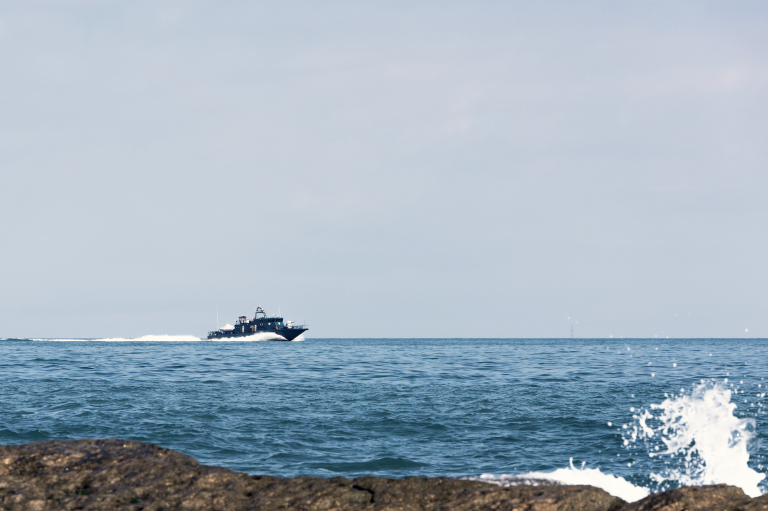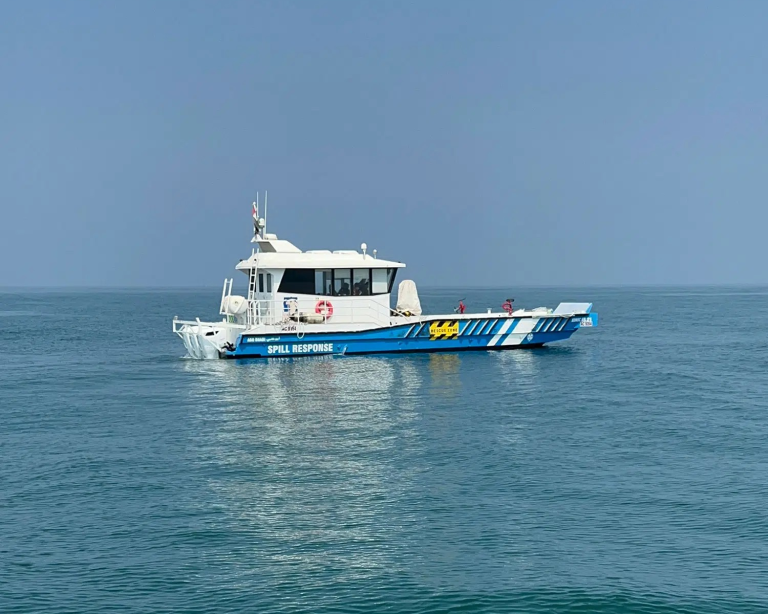Diesel vs Petrol Outboard Engines – An in-depth comparison

Choosing between diesel and petrol (gasoline) outboard engines has long been a topic of debate among marine enthusiasts, fishermen, and commercial operators. Both fuel types have distinct advantages and drawbacks in terms of fuel efficiency and performance, for example. However, when viewed from a marine engineering perspective, the conversation gets even more nuanced.
Traditionally, petrol outboard engines have dominated the marine industry, especially for leisure applications. However, with advancements in diesel engine technology, diesel outboards are gaining traction, particularly in commercial, heavy-duty, and military sectors.
This article provides an in-depth comparison between diesel and petrol outboard engines, exploring their advantages, disadvantages, and key considerations for marine enthusiasts and professionals alike.
The difference between diesel and petrol motors
Diesel and petrol engines operate on different principles of internal combustion. In a petrol engine, a mixture of air and fuel is compressed and then ignited by a spark plug. Diesel engines, on the other hand, rely on compression ignition, where the air is compressed to a much higher degree, generating heat, and then fuel is injected into the combustion chamber where it spontaneously ignites. This fundamental difference results in a variety of performance, efficiency, and durability characteristics that make each type of engine suitable for different applications.
Compression ratio:
One of the main differences between the two engine types is the compression ratio. Diesel engines typically operate at a compression ratio of around 14:1 to 25:1, compared to petrol engines, which usually operate between 8:1 and 12:1. The higher compression ratio in diesel engines contributes to their increased efficiency but also places more stress on the engine components necessitating a stronger build.
Fuel efficiency and economy
Diesel engines:
Diesel engines are known for their superior fuel efficiency. The fuel contains more energy per gallon than petrol, allowing diesel engines to extract more power and use less fuel over a given distance. This makes diesel engines ideal for long-distance cruising, where fuel consumption is a major concern. Engines, like Cox Marine’s flagship V8 diesel outboard, typically provide at least 30% more fuel efficiency compared to petrol alternatives, which translates into significant cost savings over time, especially in commercial marine applications where boats may run for extended periods.
Petrol engines:
While not as fuel-efficient as diesel engines, petrol outboards have improved significantly in recent years. Modern four-stroke petrol engines, in particular, offer enhanced fuel economy compared to older two-stroke models. However, for long journeys or high-usage scenarios, petrol engines still require more fuel to cover the same distance as diesel engines. For recreational users with sporadic use and shorter trips, the fuel efficiency of petrol engines may not be a significant concern, especially considering other benefits, such as lower initial costs.
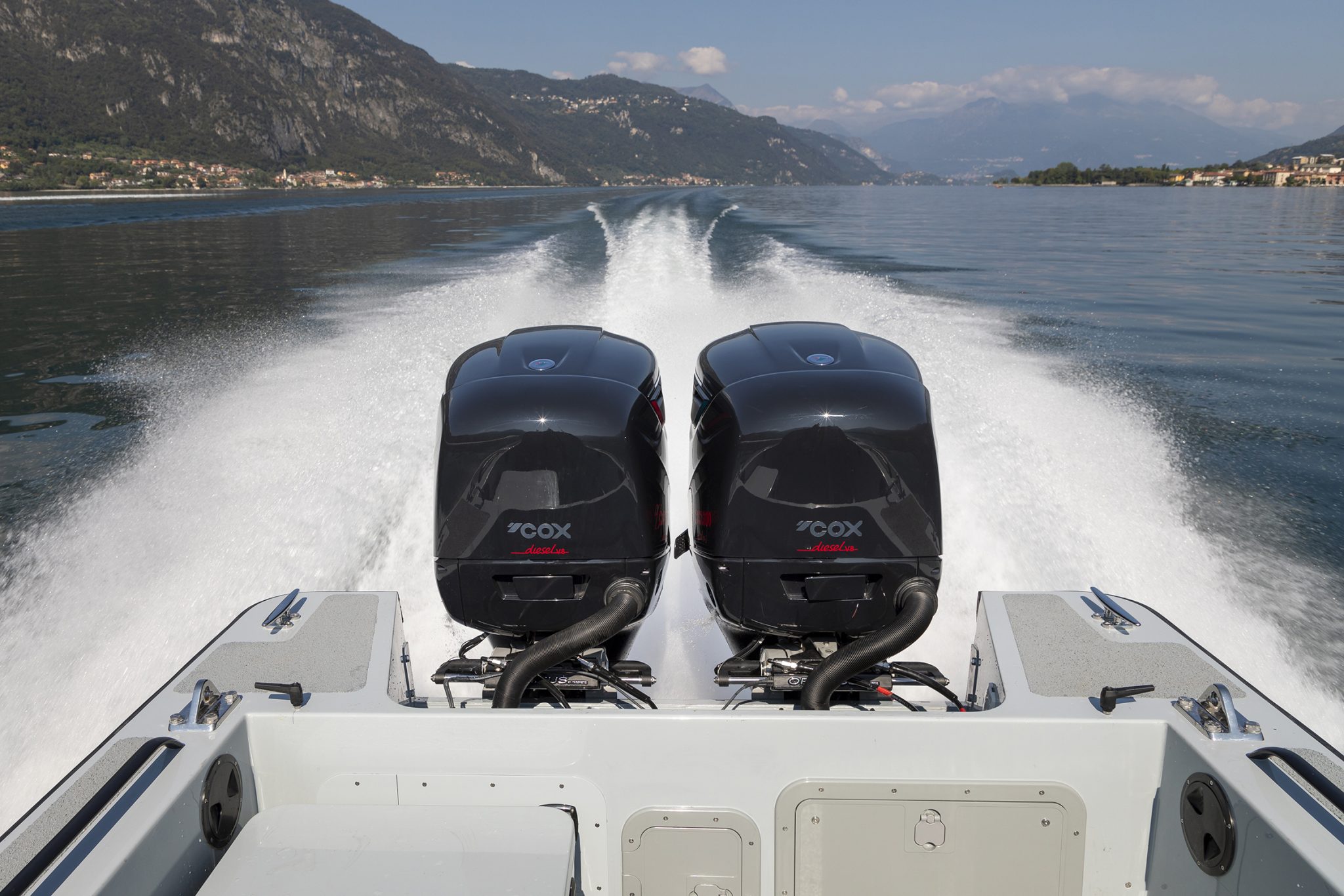
Performance: torque and horsepower
Diesel engines:
Diesel engines generate higher torque (rotational force) at lower RPMs (revolutions per minute) than petrol engines. The Cox Marine V8, for instance, delivers a peak torque of 998Nm at just 2250 RPM, which is significantly higher than most petrol outboards in the same horsepower class.
This characteristic makes diesel outboards excellent for heavy-duty applications, such as powering larger boats or vessels that carry heavy loads, where the engine needs to move a lot of weight from a standstill. Diesel engines also maintain performance under more challenging conditions, such as rough seas or strong currents.
Petrol engines:
In contrast, petrol engines typically deliver higher horsepower at higher RPMs, making them well-suited for applications that require speed and quick acceleration. Boats used for water sports, such as water skiing or wakeboarding, often benefit from the high-revving nature of petrol engines. These engines can deliver impressive bursts of power, making them ideal for lighter boats where speed is more important than torque.
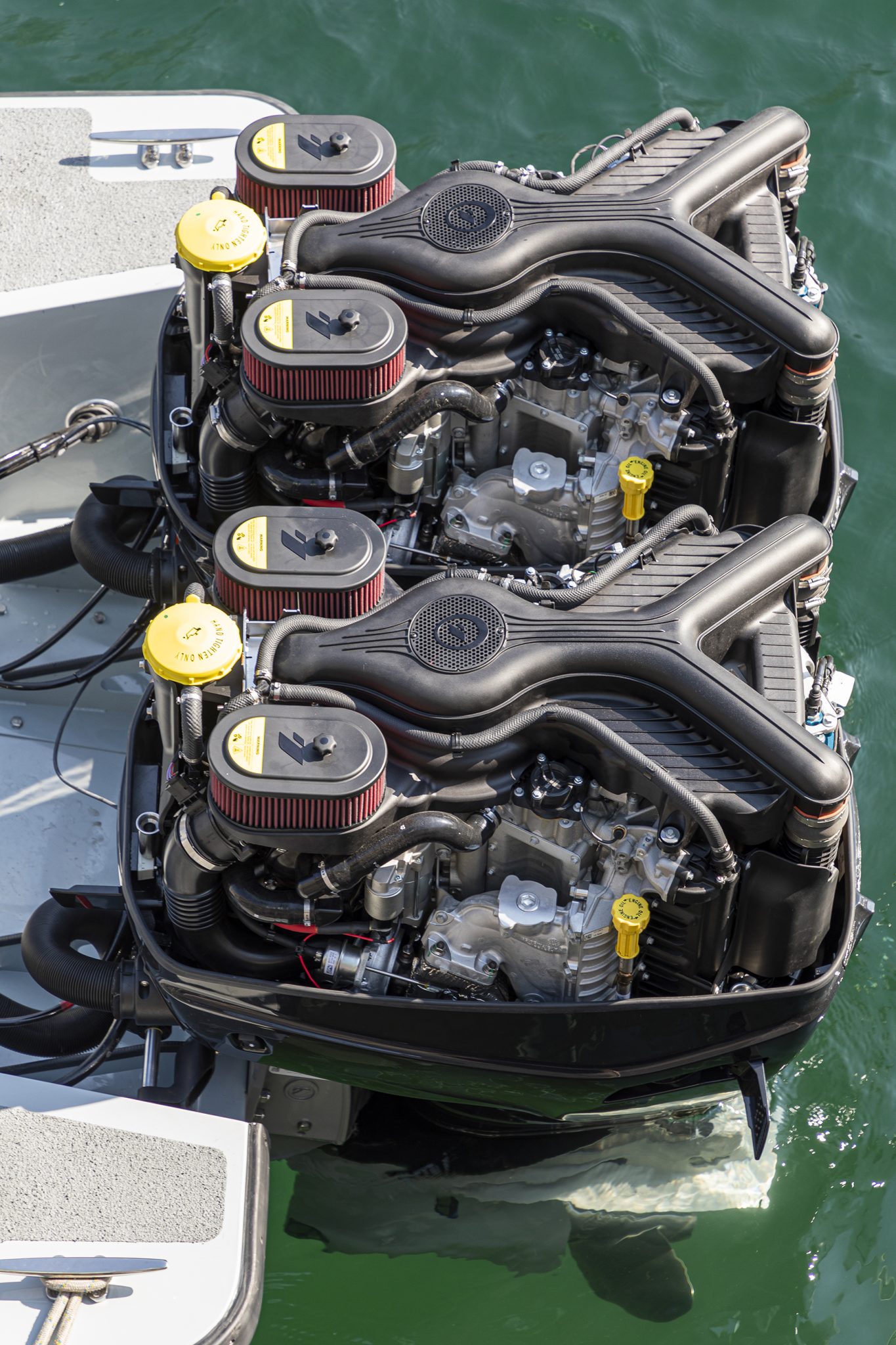
Durability and longevity
Diesel engines:
One of the key selling points of diesel outboard engines is their durability. These engines can endure high-stress levels due to the high compression ratios and heavy-duty materials used in their construction. This often leads to longer engine life and fewer significant repairs over time. Many diesel engines can last twice as long as petrol engines before requiring a major overhaul. For example, the Cox Marine V8 has an expected operational lifespan of over 3,000 hours, which is much higher than most petrol outboards. Additionally, diesel fuel has lubricating properties that help reduce wear on engine components, further extending the life of the engine.
Petrol engines:
While modern petrol engines have become more reliable and durable, they generally do not last as long as diesel engines. The lighter construction and lower compression ratios of petrol engines mean they tend to wear out more quickly, especially under heavy or constant use. For recreational users, this may not be a significant issue, as the engine may only see limited use during the boating season. However, for commercial applications or boaters who clock many hours on the water, the shorter lifespan of petrol engines can be a disadvantage.
Total cost of ownership
Initial outlay:
Diesel outboard engines are generally more expensive to purchase than petrol engines. The higher cost is due to the more complex and robust construction of diesel engines, as well as the additional technology required for fuel injection and other systems. This higher upfront cost can be a deterrent for many recreational boaters who may not use their vessels frequently enough to justify the investment.
Petrol engines, on the other hand, are typically cheaper to buy and more widely available, making them a popular choice for budget-conscious consumers. For casual boaters, the lower initial cost can be a significant advantage, especially with vessels for occasional use.
Fuel and maintenance:
Diesel fuel tends to be more expensive per gallon than petrol in many regions, though the difference in price can vary widely depending on location. However, because diesel engines are more fuel-efficient, they offer savings over the long term, especially for users who operate their boats frequently or over long distances. Also, diesel fuel is far more readily available than petrol is on the water, making it easy to run diesel outboards in more remote locations.
In terms of maintenance, diesel engines require less frequent maintenance than petrol engines; however, the cost of repairs and parts can be higher. Diesel engines typically have longer service intervals, which helps reduce overall maintenance costs.
Environmental factors in boating
Emissions:
Diesel engines have been criticised for high emissions of nitrogen oxides (NOx) and particulate matter (soot), which contribute to air pollution. However, modern diesel engines are equipped with advanced emissions control technologies, such as selective catalytic reduction (SCR) and diesel particulate filters (DPF), which significantly reduce harmful emissions. The Cox V8 is a case in point and meets or exceeds current environmental standards, including IMO Tier II regulations and EPA standards. It is also the only high-powered diesel outboard certified with BSO-II. Despite technological advancements, diesel engines are likely to produce more pollutants than petrol engines, especially in older models.
Petrol engines, especially four-stroke models, are generally cleaner-burning than diesel engines, producing lower levels of NOx and particulate matter. However, petrol engines emit higher levels of carbon monoxide (CO) and hydrocarbons (HC), which also harm the environment. In terms of environmental impact, the choice between diesel and petrol engines often depends on the specific emissions that are most concerning in a particular region.
Fuel production and sustainability:
Diesel fuel is more energy-dense than petrol, meaning less fuel is needed to produce the same amount of energy. This can result in a smaller overall carbon footprint for diesel engines, especially in cases where the boat is used frequently or for prolonged periods. On the other hand, petrol is more widely available, and some advancements are being made in the production of biofuels, which could make petrol engines more environmentally friendly in the future.
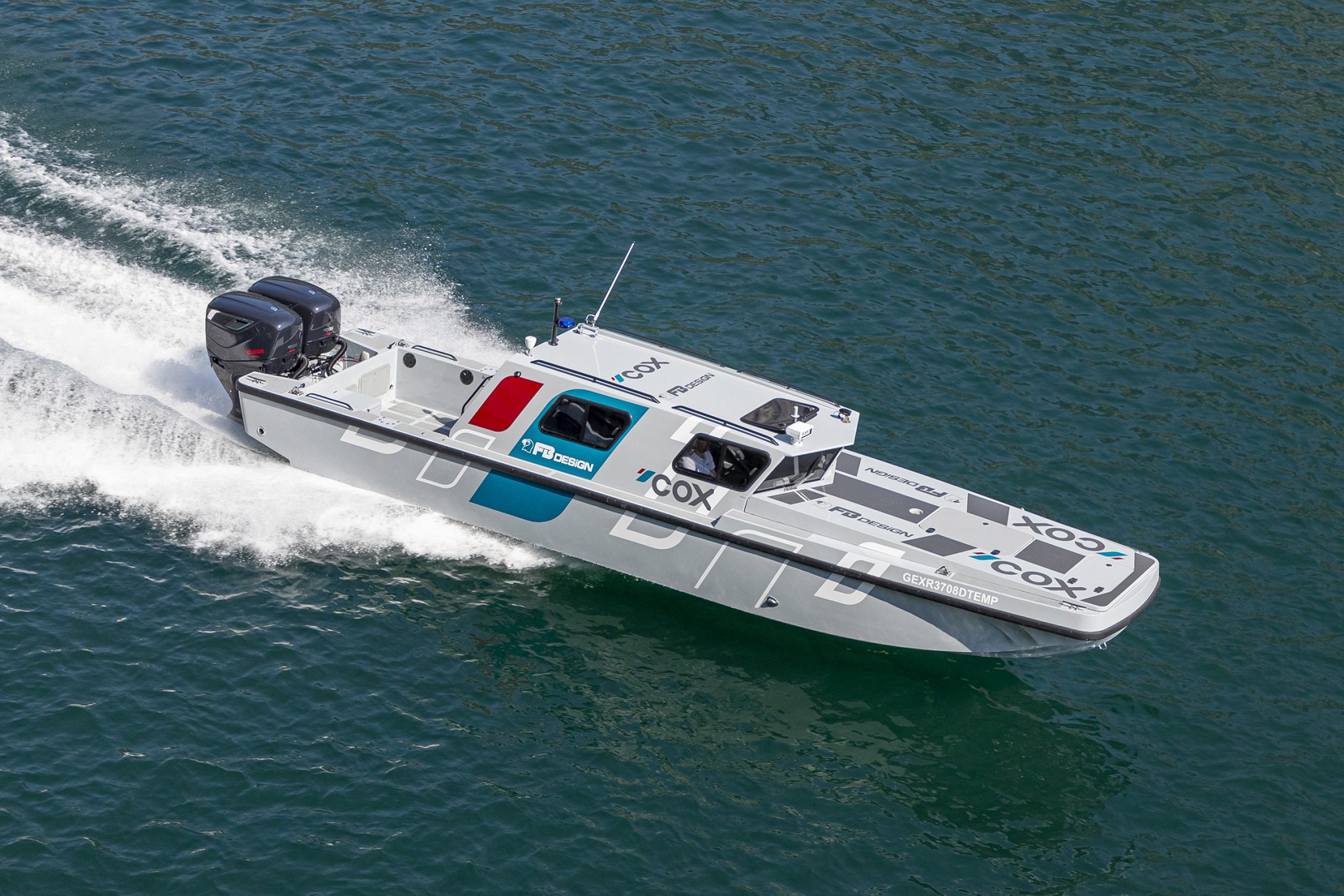
Safety issues
Diesel engines:
Diesel fuel is less flammable than petrol, making it inherently safer in terms of the risk of fire or explosion. This is particularly important in marine environments, where fuel spills or leaks can be more hazardous. In addition, diesel fuel is less likely to vaporise at normal temperatures, reducing the chance of ignition in the event of a fuel leak.
Petrol engines:
Petrol, being more volatile than diesel, presents a higher risk of fire and explosion, especially in confined spaces like the engine compartment of a boat. Owners using petrol engines must be particularly vigilant about proper ventilation and handling of fuel to minimise the risk of accidents.
Availability and infrastructure
Diesel engines:
Diesel fuel is widely available in many coastal areas and marinas, especially in regions with a large commercial fishing or shipping industry. However, in some more remote or recreational areas, diesel fuel may be harder to find, which could be a disadvantage for boaters who travel long distances or frequent less developed locations.
Petrol engines:
Petrol is generally more readily available than diesel in most areas, making it a more convenient choice for boaters who travel to different locations. This widespread availability can be a deciding factor for owners who prioritise convenience and ease of refuelling.
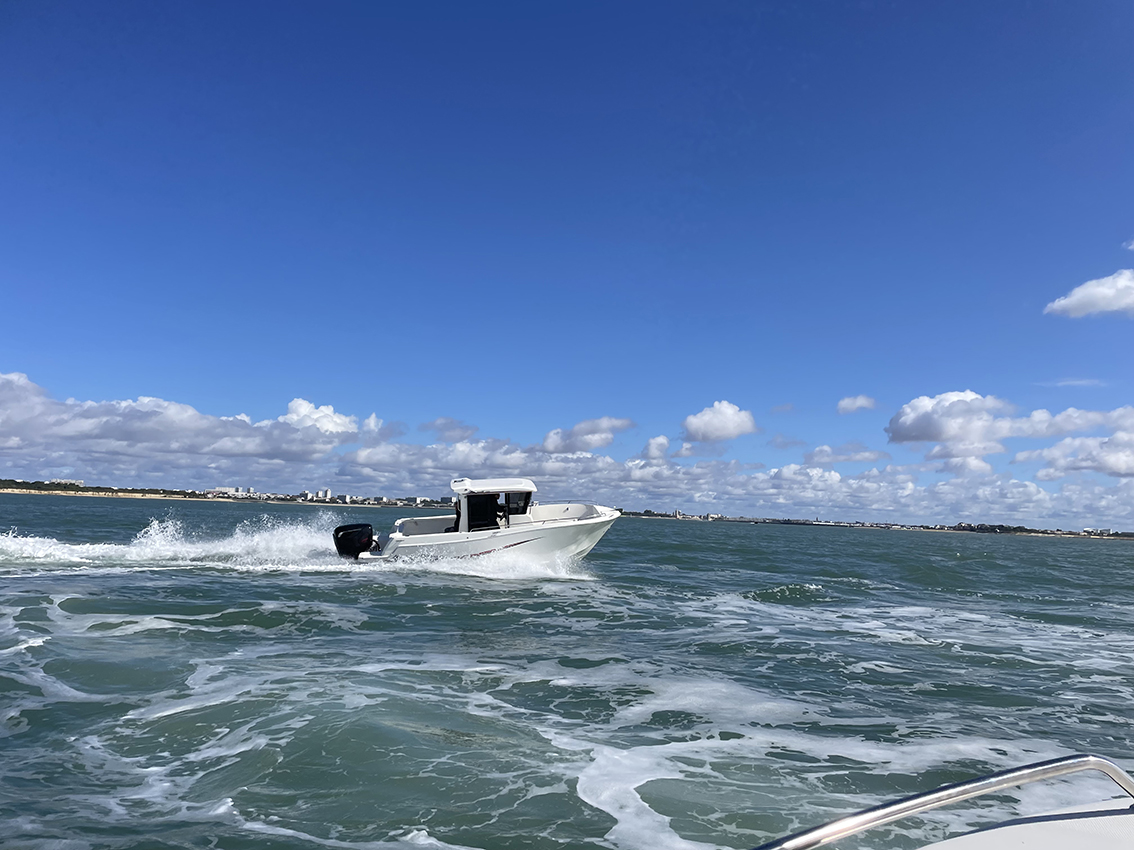
Diesel outboards make commercial sense
When choosing between a diesel or petrol outboard engine, the decision ultimately depends on the specific needs and priorities of the boat owner. Overall, diesel engines, like Cox Marine’s V8, offer the superior fuel efficiency, durability, and torque required for heavy-duty applications and long-distance cruising.
Nevertheless, understanding the trade-offs between the different engine types will allow boaters to make an informed decision when choosing the outboard that best suits their needs and usage requirements.
FAQ’s
Which type of outboard engine is more fuel-efficient, diesel or petrol?
Diesel outboard engines are generally more fuel-efficient than petrol outboard engines. Diesel fuel has a higher energy density, and diesel engines operate more efficiently, especially at lower RPMs, which is beneficial for long-distance cruising.
What are the maintenance differences between diesel and petrol outboard engines?
Petrol outboard engines typically have lower maintenance costs and are easier to service compared to diesel outboard engines. Diesel engines have more complex components and require more frequent maintenance, such as oil changes and fuel filter replacements.
Which engine type is better for heavy-duty marine applications?
Diesel outboard engines are better suited for heavy-duty marine applications. They provide higher torque at lower RPMs, making them ideal for larger boats and vessels that require more power for towing and long-distance travel.
How do diesel and petrol outboard engines compare in terms of environmental impact?
Petrol outboard engines generally produce fewer emissions of nitrogen oxides (NOx) and particulate matter compared to older diesel engines. However, modern diesel outboard engines have become cleaner with advancements in emission control technologies, such as diesel particulate filters (DPFs) and selective catalytic reduction (SCR) systems.

Find a Cox Marine Dealer

About Cox Marine

